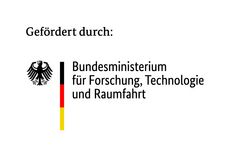How hospitals become climate neutral
The KlinKe project worked with 15 partner institutions to develop concrete approaches for making non-medical processes in hospitals climate-friendly.

- Project
KlinKe - Climate-neutral secondary processes in hospitals
- Running time
1 September 2021 – 31 August 2024
- HWR Berlin
Department Cooperative Studies Business • Technology
- Responsible for the project
Prof. Dr. Andrea Pelzeter
Prof. Dr. Silke Bustamante - Projektbeteiligte der HWR Berlin
Heike Prüße
Martina Martinovic
Franziska Ihle
- Project partners
Hospitals:
Evangelisches Krankenhaus Hubertus
Universitätsklinikum Hamburg-Eppendorf (UKE)
Vivantes Service GmbHService providers:
Apleona Ahr Healthcare & Services GmbH
Charité CFM Facility Management GmbH
Dussmann Service Deutschland GmbH
FACT GmbH:
Johannesstift Diakonie Services GmbH (JDS)Consulting institutions:
Intep GmbH
P.E.G. Einkaufs- und Betriebsgenossenschaft eG
Piepenbrock FM Consulting GmbH + Co. KG (PFMC)Associations:
CAFM RING e.V.
GEFMA Deutscher Verband für Facility Management e.V.
Fachvereinigung Krankenhaustechnik e.V. (FKT)
Zukunft Krankenhaus-Einkauf (ZUKE) - Funded by
Federal Ministry of Research, Technology, and Space (BMFTR)
- Project website
Cleaning services, laundry, clinic logistics: the carbon footprint of hospitals is not only generated in the operating theatre. The KlinKe project, involving 15 partner institutions, developed concrete approaches for making non-medical processes climate-friendly.
What were the specific goals of the project?
Hospitals account for around five percent of Germany's CO₂ emissions. The KlinKe project therefore investigated how so-called secondary processes (non-medical processes such as cleaning, logistics, energy supply, or food preparation) can be made climate-neutral. The goal was to develop practical, transferable guidelines that outline specific measures.
How was the work carried out?
The research team worked with over 15 partners from the field to analyze processes in hospitals and related service companies. In the process, greenhouse gas emissions were identified, key emission drivers were named, and concrete options for reduction were developed.
The areas examined included:
- Mobility of employees and patients
- Cleaning and hygiene
- Food supply
- Textile and laundry logistics
- Waste management
A materiality analysis and benchmarking formed the methodological basis.
What specific results are available?
The project has resulted in a guide for non-medical hospital processes aimed at hospital management, facility management service providers, and decision-makers in administration and politics. It was published as GEFMA Guideline 162-2 and forms the basis for the accompanying white paper (GEFMA 984-3), which presents CO₂ accounting, reduction options, and management approaches in a structured manner. Both publications are available from GEFMA.
Examples for areas for action:
- Employee mobility: Service providers in administration and cleaning often drive to the clinic in their private cars. Emissions can be significantly reduced by promoting ecological alternatives such as job tickets or e-bike leasing.
- Laundry logistics: The use of hospital textiles can be made more sustainable by using battery-powered vehicles for transport or switching to low-emission textiles.
- Waste management: Practical separation of residual waste, paper, and packaging contributes to CO₂ savings. Concepts for the reprocessing of disposable products (e.g., heart catheters) enable the multiple use of valuable resources and reduce the burden on the environment.
How does this contribute to sustainability?
Durch die systematische Analyse von CO₂-Treibern und praxisbezogene Change-Workshops leistet KlinKe einen Beitrag zur Dekarbonisierung des Gesundheitswesens. Die Projektergebnisse unterstützen Verantwortliche aus Krankenhausbetrieb, Dienstleistungsunternehmen und Politik dabei, Klimaschutzpotenziale in ihrem Einflussbereich zu identifizieren und umzusetzen.
What remains?
The recommendations developed will be used beyond the project period to anchor sustainability as a criterion in tenders, awards, and contracts. Specialist publications in national and international journals ensure the scientific connectivity of the results. A selection can be found on the project website.
Contact:

Diese Neuigkeit erscheint im Rahmen des Themenjahres »Wir machen Berlin«.
#VisionenFuerBerlin #WirtschaftUndTechnikFuerBerlin